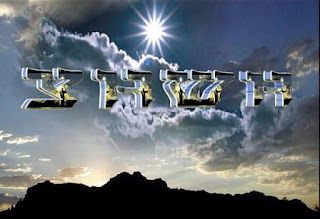Well for those that are interested, I learned something new today. It appears that once again our thoughts have been entangled into a literary interpretational “spin” of sorts. A group of Tribulation-Now leaders have just completed a lengthy conference call in preparation for a forthcoming article on “The Sacred Words”. However in doing so, an imperative foundation of Good vs. Evil was brought forward for consideration.
In our ongoing investigation of the wonderful mysteries of our Heavenly Father, I present to you …
Did God Create Evil – Does the Bible Say So?
by Rich Deem
Introduction One of the most common reasons skeptics reject the existence of God is due to the presence of evil in this universe. They reason that a perfect God would not create a universe in which evil exists. Skeptics claim that since God created everything that God must have also created evil. They even cite Bible verses, such as:
• I form the light, and create darkness: I make peace, and create evil: I the LORD do all these things. (Isaiah 45:7, KJV)
• Shall a trumpet be blown in the city, and the people not be afraid? shall there be evil in a city, and the LORD hath not done it? (Amos 3:6, KJV)
• Out of the mouth of the most High proceedeth not evil and good? (Lamentations 3:38)
However, evil is not really a created thing. You can’t see, touch, feel, smell or hear evil. It is not one of the fundamental forces of physics, nor does it consist of matter, energy, or the spatial dimensions of the universe. Still, skeptics like to claim that God created evil and cite the Bible to “prove” their point. The Bible is quite clear that God is not the author of evil and insists that He is incapable of doing so.1
Love that King James translation!
Skeptics love the KJV so much, one would think that they were still back in medieval England. Use of this translation is problematic these days, since it uses an archaic version of modern English, which doesn’t necessarily mean the same things today as when it was translated over 400 years ago. In addition, the KJV was produced using a limited number of medieval manuscripts that did not represent the earliest Alexandrian set of manuscripts.
What do the modern translations say?
• The One forming light and creating darkness, Causing well-being and creating calamity; I am the LORD who does all these. (Isaiah 45:7, NASB)
• I form the light and create darkness, I bring prosperity and create disaster; I, the LORD, do all these things. (Isaiah 45:7, NIV)
Isaiah 45:7 contrasts opposites. Darkness is the opposite of light. However, evil is not the opposite of peace. The Hebrew word translated “peace” is shâlôm,2 which has many meanings, mostly related to the well being of individuals. Râ‛âh,3 the Hebrew word translated “evil” in the KJV often refers to adversity or calamity. There are two forms of the word. Strong’s H7451a most often refers to moral evil, whereas Strong’s H7451b (the form used here) most often refers to calamity or distress. Obviously, “calamity” is a better antonym of “peace” than “evil.”
Amos 3:6
• If a trumpet is blown in a city will not the people tremble? If a calamity occurs in a city has not the LORD done it? (Amos 3:6, NASB)
• When a trumpet sounds in a city, do not the people tremble? When disaster comes to a city, has not the LORD caused it? (Amos 3:6, NIV)
Likewise, Amos 3:6 uses the same word, râ‛âh, referring to calamity or disaster. the context (a disaster happening to a city) does not refer to moral evil.
Lamentations 3:38
•Is it not from the mouth of the Most High that both calamities and good things come? (Lamentations 3:38, NIV)
•Is it not from the mouth of the Most High That both good and ill go forth? (Lamentations 3:38, NASB)
The King James Version of Lamentations 3:38 seems to suggest that God speaks both good and evil. However, if one reads the verse in context, the preceding verses indicate that God does not do or approve of evil.4 The verse following indicates that people should not complain in view of their sins.5 What the verse really is saying that God decrees times of good things and times of judgment. Lamentations was written by Jeremiah during a time of judgment, when Judah had gone off into exile. Jeremiah was chosen by God to be the prophet to tell Judah to reform or be judged. The people did not believe Jeremiah, and, therefore, fell under God’s judgment. In Lamentations 3:38, the word translated “good” is ṭôb (Strong’s H2896).6 The word usually refers to good things5 as opposed to bad things. Again, râ‛âh3 does not refer to moral evil, but calamities, in this verse. Likewise, the Bible commentaries indicate that the verse refers to God’s judgment based upon people’s sin.7
Conclusion
God is not the author of evil.8 However, God does reward and punish on the basis of good and bad behavior. Therefore, God does bring judgment and calamity (either directly or through human authorities) on those who rebel.9 God will ultimately judge all people, since rebels will not be allowed in the new, perfect creation.
For More Information and Citations on this Study please see:
http://www.godandscience.org/apologetics/evil.html


